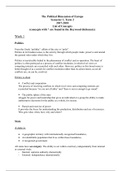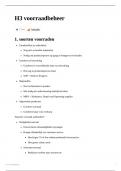Samenvatting
The Political Dimension of Europe Summary 2018
- Instelling
- Haagse Hogeschool (HHS)
Political Dimension of Europe Exam 2018. Includes 101 concepts. Information from the lectures, seminars, powerpoint slides and the Politics book. In English!
[Meer zien]





